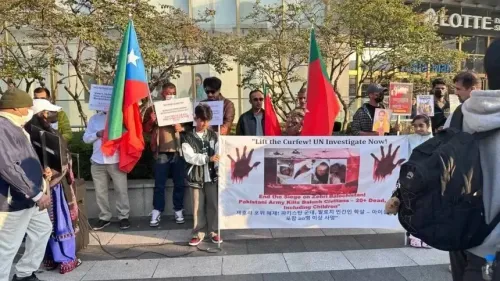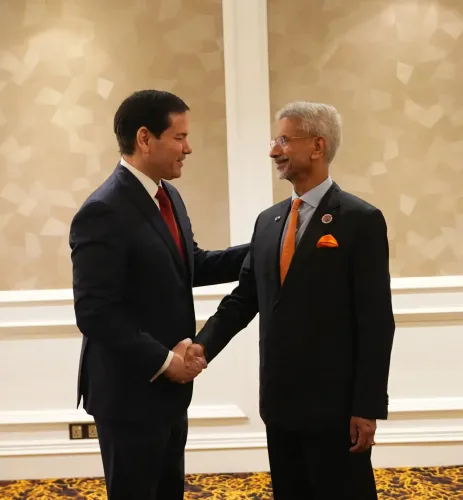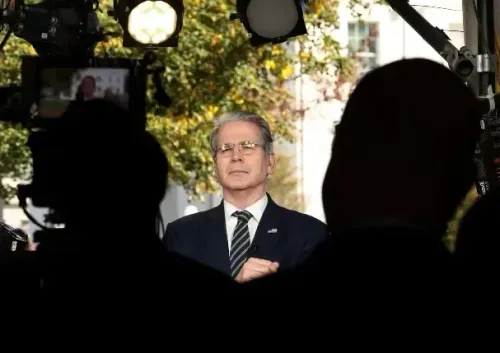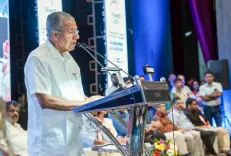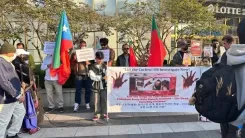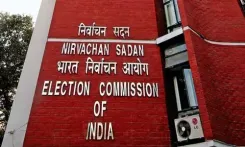Is Trump Leaving Malaysia for Japan on His Asia Tour?
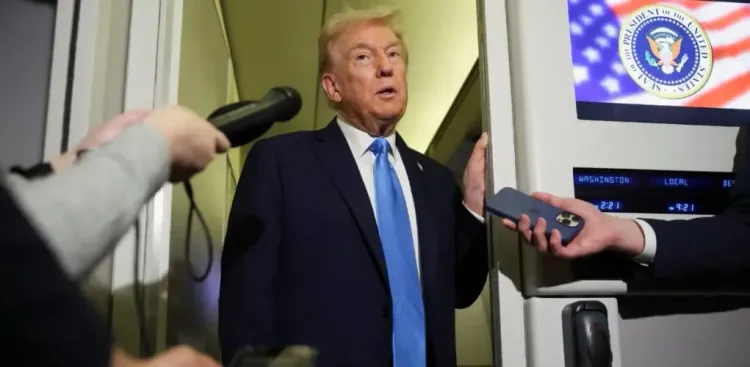
Synopsis
Key Takeaways
- Trump's departure from Malaysia marks the continuation of his Asia tour.
- Meeting with Japanese Emperor Naruhito highlights the significance of diplomatic relations.
- Investment discussions aim to bolster US economic interests in the region.
- Potential meeting with Xi Jinping underscores the importance of US-China relations.
- Trump's engagement with regional leaders reflects ongoing geopolitical dynamics.
Kuala Lumpur, Oct 27 (NationPress) US President Donald Trump is set to depart Malaysia shortly, heading to Japan for the second leg of his six-day, three-nation tour across Asia.
Trump's departure from Kuala Lumpur is anticipated around 10 a.m. local time on Monday, with his arrival in Tokyo expected by 5 p.m. local time, according to reports from CNN.
Upon his arrival, the President's only public engagement scheduled is a courtesy visit to Japanese Emperor Naruhito at the Imperial Palace.
In Japan, Trump will also engage in discussions with Sanae Takaichi, Japan's newly elected Conservative Prime Minister, as reported by CNN.
Similar to his visit to Malaysia, Trump's hosts in Japan are expected to provide significant pomp and circumstance during his stay.
Following this leg of the journey, Trump will proceed to South Korea, where he aims to advance negotiations for at least $900 billion in investments for US factories and various projects, contingent on an agreement to reduce his proposed tariff rates from 25% to 15%.
This visit to Tokyo follows the recent election of Japan's first female Prime Minister, Takaichi.
Trump had a close relationship with former Prime Minister Shinzo Abe, who was tragically assassinated after his term.
During his flight, Trump had a conversation with Takaichi.
While in Japan, he is also scheduled to meet with US troops stationed in the region, as confirmed by a senior US official who spoke on the condition of anonymity.
In South Korea, Trump is expected to have a highly anticipated meeting with China's President Xi Jinping during the Asia Pacific Economic Cooperation (APEC) summit.
Although the APEC summit will occur in Gyeongju, the Trump-Xi meeting is anticipated to take place in Busan, according to the same US official.
This meeting comes in the wake of several months of fluctuating tensions in the trade war between China and the US, which has caused instability in the global economy.
Earlier this month, Trump expressed his anger after Beijing imposed new export controls on rare earth materials crucial for technology development and threatened to raise retaliatory tariffs significantly.
In a press briefing on Friday, Trump mentioned he might inquire about the release of Jimmy Lai, a pro-democracy newspaper founder, stating, 'It will be on my list.'
The only meeting that could rival the importance of the Xi summit would be an unplanned reunion with North Korean leader Kim Jong Un, although such a meeting is not on the President's agenda for this trip, as per the US official.
Trump hinted on Friday that communicating with the North Korean leader is challenging.
'They possess a significant number of nuclear weapons, but their telecommunications are lacking,' he remarked.
Trump's initial stop was the Association of Southeast Asian Nations (ASEAN) summit in Kuala Lumpur.
During his first term, Trump attended the annual ASEAN summit only once, but this year it coincides with efforts by Malaysia and the US to mediate a conflict between Thailand and Cambodia.
On Sunday, he held a meeting with Malaysian Prime Minister Anwar Ibrahim, followed by a joint signing ceremony with the Prime Ministers of Thailand and Cambodia.
Trump had previously threatened to withhold trade deals from these countries unless they ceased fighting, and his administration has been collaborating with Malaysia to secure a broader ceasefire.
The US President praised Ibrahim for his efforts in resolving the conflict, stating, 'I told the leader of Malaysia, who is an exceptional individual, I think I owe you a visit.'
Additionally, Trump had a notable meeting with Brazilian President Luiz Inácio Lula da Silva, who is advocating for the US to eliminate a 40% tariff on Brazilian imports.
The US administration has defended these tariffs, citing Brazil's legal prosecution of former President Jair Bolsonaro, a Trump ally.

